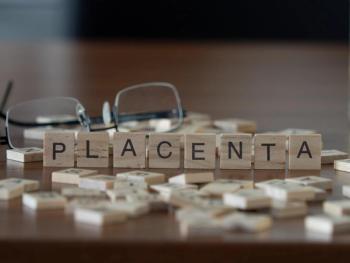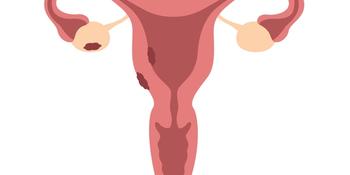
AHN Women’s Institute delivers optimal outcomes for patients with uterine fibroids

While often asymptomatic, uterine fibroids affect 70 to 80% of women in the U.S. by age 50 and can significantly impact their quality of life. AHN Women’s Institute has a highly specialized team that provides patients with options tailored for their condition and individual needs.
The team offers a full array of diagnostic and therapeutic procedures for uterine fibroids and treatment plans based on a patient’s symptoms. AHN’s fibroid specialists include gynecologists, urogynecologists, diagnostic radiologists, interventional radiologists, and nurse practitioners. They work collaboratively to streamline patients’ care, so they receive coordinated, comprehensive treatment.
“Early detection and intervention can considerably improve outcomes and minimize the potential complications associated with uterine fibroids,” said Noah Rindos, MD, an AHN minimally invasive gynecologist. “We encourage women to seek medical attention if they experience any concerning symptoms. Our goal is to deliver the safest, most effective treatments so patients can stay healthy.”
A common condition with diverse presentations
Uterine fibroids are the most common benign tumors in women of childbearing age. These growths run the gamut of presentations. Fibroids grow in and around the muscular wall of the uterus as a single tumor or as several. They can be as small as an apple seed or as big as a grapefruit, and they can grow or stay about the same size over time.
Fibroids can also manifest in a variety of ways, ranging from mild discomfort to severe pain and debilitating symptoms. Common symptoms include heavy menstrual bleeding, pelvic pain, and pressure on the bladder and rectum, which cause frequent urination or constipation. In some cases, fibroids can interfere with conception, impacting a patient’s reproductive goals.
Watchful waiting to advanced treatments
For asymptomatic or minimally symptomatic patients, watching and waiting may be the most appropriate option because fibroids are rarely cancerous. This involves close monitoring and observation, with intervention only if symptoms worsen or become intolerable.
For patients experiencing mild to moderate symptoms, medical management can be effective. This may include hormonal therapy, including oral contraceptives to regulate menstrual cycles and reduce bleeding. Certain types of intrauterine devices (IUD) can also reduce heavy bleeding.
When medical management fails or symptoms are severe, patients may consider interventional procedures.
AHN Women’s Institute offers a range of minimally invasive and noninvasive procedures that result in fewer incisions and help patients recover faster. These approaches ease fibroid symptoms without affecting surrounding healthy tissue.
Uterine fibroid embolization (UFE) is a valuable treatment option for women with symptomatic fibroids who are not candidates for surgery or who prefer a less invasive approach. Doctors insert a catheter through an artery in the groin or wrist and guide it to the arteries supplying the fibroids with blood. The catheter releases small particles that cut off blood supply to the fibroids, so they shrink. This procedure also preserves the uterus.
“UFE has a high success rate in reducing fibroid size and alleviating symptoms. This is a great option for women who want to preserve their fertility and avoid major surgery,” Dr. Rindos said.
If nonsurgical treatments fail to resolve symptoms, the team may recommend surgery, including myomectomy and hysterectomy. AHN surgeons perform both as a minimally invasive procedure or an open surgery, depending on the patient’s case.
Committed to patient education and support
AHN’s comprehensive approach to uterine fibroids ensures patients receive the highest quality care, truly focused on their situation and needs. AHN offers support groups for women with uterine fibroids, providing a safe space to share experiences and connect with others. The team also has convenient scheduling options and multiple locations throughout the region, ensuring patients have easy access to care.
“Our team-based approach provides timely and effective relief,” Dr. Rindos said. “By combining advanced technology, expert physicians, and a commitment to patient education and support, we strive to empower women to manage their fibroids and live healthy, fulfilling lives.”
To refer a patient to AHN Women’s Institute, call 412-DOCTORS.
Newsletter
Get the latest clinical updates, case studies, and expert commentary in obstetric and gynecologic care. Sign up now to stay informed.








